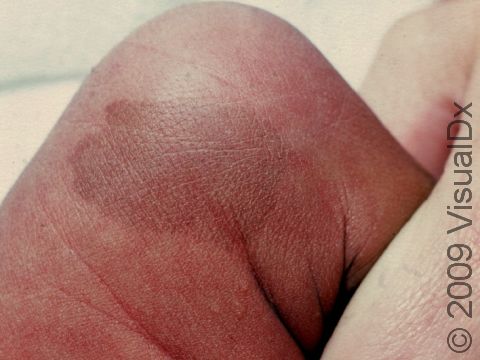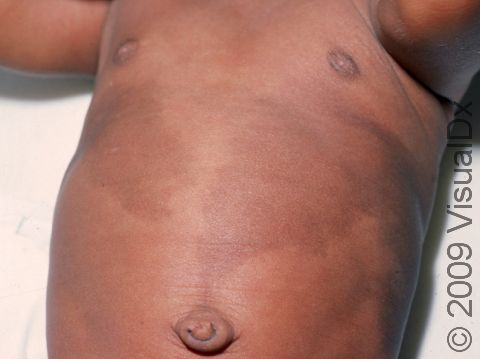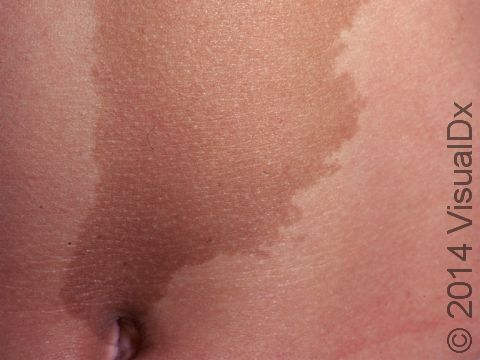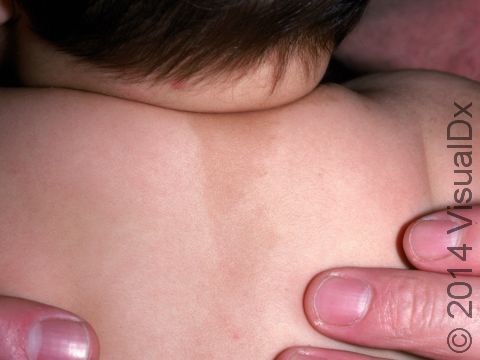Café au Lait Macule
A café au lait macule (CALM) is a well-defined, flat area that is darker in color than the rest of the skin (hyperpigmented). The term refers to the characteristic even (homogeneous) color of “coffee with milk,” which may be light to dark brown.
- Café au lait macules usually appear first in early childhood, although they may be present at birth. They may be single or multiple, and they increase in size as the person gets older.
- Café au lait macules can be indicators of more extensive (multisystem) disease, particularly neurofibromatosis, a condition that is also marked by freckles in the armpit and groin regions, as well as neurofibromas.
Who's At Risk?
Single café au lait macule lesions are present in 10–20% of the US population.
- 1% of healthy young adults have up to 3 café au lait macules.
- Lesions are more common in darker-skinned individuals (3% of Hispanic and 18% of black newborns have a café au lait macule), and these individuals have a darker “espresso” pigmentation, compared to those seen in whites.
Signs & Symptoms
Light-to-dark-brown, well-defined, even-colored, and often oval, flat lesions anywhere on the skin except for the linings (mucous membranes) of body cavities such as the mouth, nose, or genital areas.
Self-Care Guidelines
None necessary.
Treatments
No therapy is needed for café au lait macules. Lasers may be used for cosmetic concerns, although the color often comes back (recurs) after laser treatment.
Visit Urgency
While café au lait macules are common, see your child’s doctor or a dermatologist if he or she has unidentified pigmented lesions.
Trusted Links
References
Bolognia, Jean L., ed. Dermatology, pp.986-987, 1758-1759. New York: Mosby, 2003.
Freedberg, Irwin M., ed. Fitzpatrick’s Dermatology in General Medicine. 6th ed. pp.772, 864-867, 2505. New York: McGraw-Hill, 2003.
Last modified on October 10th, 2022 at 7:49 pm
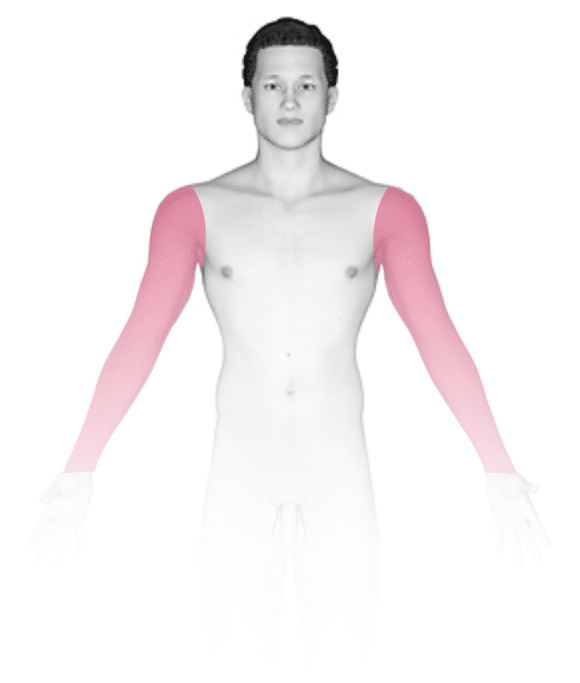
Not sure what to look for?
Try our new Rash and Skin Condition Finder
